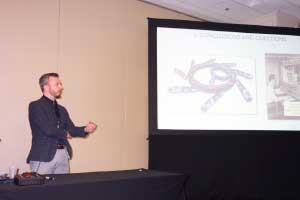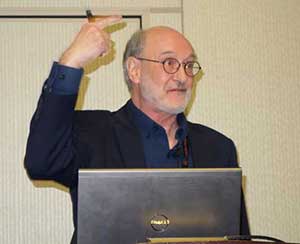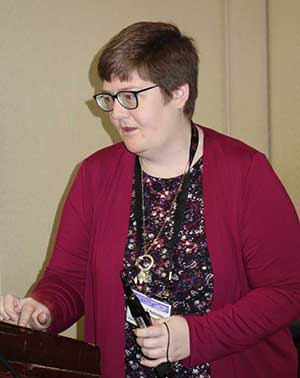Transitions in Physics and Related Fields from the Late 19th Century to Today
By Catherine Westfall
This session, which was organized and chaired by Catherine Westfall, began with a lively talk by Joseph Martin, from the Consortium for History of Science, Technology, and Medicine. In the talk, "Before New Big Science: Alfred O. C. Nier and the Resurrection of Mass Spectrometry, Martin told the story of the transformation from the 1940s to the 1960s of the mass spectrometer from a purpose-built instrument into a flexible analytical tool useful to a wide range of researchers in the natural sciences. Martin described this transition through the story of Nier, a University of Minnesota spectroscopist who found new applications and built an team interdisciplinary of users. Martin argued that this development was a precursor to what has been dubbed the "New Big Science" by Robert P. Crease and Catherine Westall, which began to emerge in accelerator laboratories starting in the 1980s.
Robert Smith from the University of Alberta spoke of another transition in his talk "Across the Divide: From the One Galaxy Universe to the Expanding Universe." He noted that near the end of the 19th century astronomers had little concern for the universe and its history or in knowing what was beyond our galaxy. That changed in the first decades of the twentieth century, thanks to a number of factors including the development of quantum mechanics and relativity. Smith then spoke of the emergence of the idea of the expanding universe in subsequent decades.
The last talk, "An Attempt to Solve the Controversies Over Elements 104 and 105: A Meeting in Russia, 12 September 1975," was given by Ann Robinson from the University of Massachusetts, Amherst. Robinson examined the controversy that pitted Gerogy Flervo and Yuri Oganessian and others from the Soviet Union against Glenn Seaborg and Albert Ghiorso from the US, through a close reading of notes associated with a crucial meeting meant to iron out competing claims about who discovered the elements. As Robinson notes, a key issue was whether chemical or physical evidence clinched the case. She went on to argue that the impossibility of settling the dispute paved the way formal procedures for such cases adjudicated by external experts, dominated by physicists.

Joseph Martin of the Consortium for History of Science, Technology, and Medicine

Robert Smith of the University of Alberta

Anne Robinson of the University of Massachusetts, Amherst
The articles in this issue represent the views of their authors and are not necessarily those of the Forum or APS.
